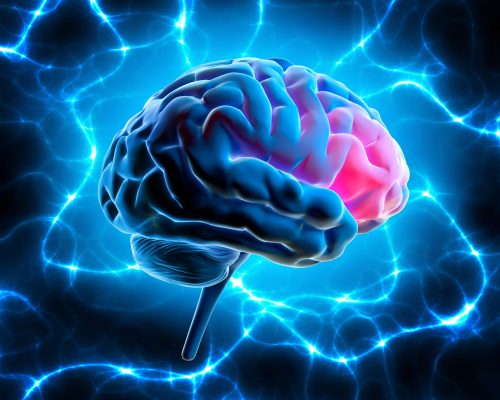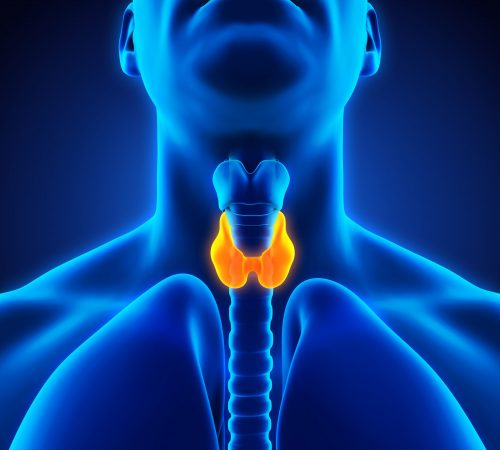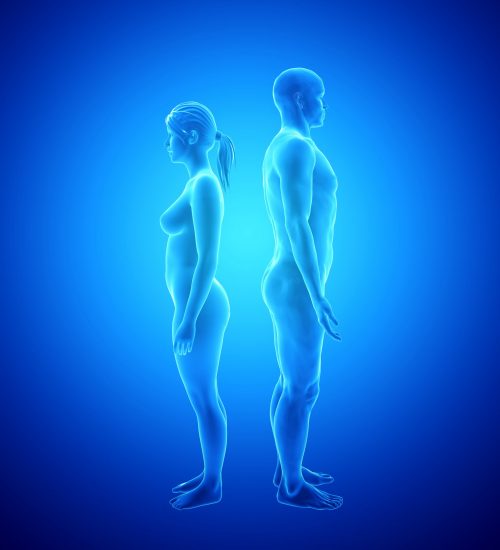Traumatic Brain Injury & Hypogonadism In Military Veterans

As the name suggests, Traumatic Brain Injury (TBI) is an injury of the brain. It can present itself in various forms, ranging from mild alterations of consciousness to unrelenting comatose states and at the worst, death 1. TBI can be induced by car or motorcycle crashes, falls, sports injuries, and assaults.
It’s important to note that there are different categories of TBI. One other type is combat/military related mild traumatic brain injury (mTBI) among veterans. This is often caused by blast exposure in conflict. We will be primarily discussing mTBI.
How Common Is TBI Among Veterans?
Unfortunately, but not so surprisingly, the incidence of TBI among military veterans is significant. Our military heroes are also often left with higher rates of post-traumatic stress disorder (PTSD), depression, back pain, and suicidal ideation (thoughts) 2–4.
The most common cause of TBI in veterans includes blast, objects hitting the head, and falls 5. Sadly, TBI has been called a “signature injury” of Iraq and Afghanistan Conflicts 6. Often, veterans have mTBI. The prevalence of mTBI among UK military personnel that returned from Afghanistan and Iraq, in a sample size of 4620, was 4.4%, which is approximately 185 veterans, or 11 veterans for every 250 7. In this cohort, having mTBI was well associated with current symptoms of PTSD (Adjusted odds ratio of 5.2; 95% CI, 1.3-5.2), alcohol misuse (Adjusted odds ratio of 2.3; 95% CI, 1.4-3.7) and multiple physical symptoms (Adjusted odds ratio of 2.6;95% CI, 1.3-2.5) 7.
TBI & Hypogonadism
Unfortunately again, TBI increases the risk of hypothalamic-pituitary deficiencies. Given I mentioned ‘hypothalamic-pituitary’, you can probably guess what I’ll say next. There is the risk of persistent (chronic) hypogonadism after TBI, with an estimation of 8% to 41% prevalence among those with TBI, and higher yet in those with mTBI due to associated higher risk of PTSD (well associated with hypogonadism) 8–10.
Not all hypogonadism is equal, either. Veterans with post-TBI hypogonadism often have far poorer long-term outcomes than those with hypogonadism by other causes 8. They often have worsened functional dependence (can’t carry out normal day-to-day tasks as easily), greater incidence of disability of some kind, and worsened cognition. Testosterone is known to have a significant influence on the human brain via various neurobiological processes and is indeed well related with depression 11. So hypogonadism now becomes a compounding factor that can contribute to further increased risk of suicidal ideation, attempts, and completion. So there is an absolute urgent need to treat those with hypogonadism and TBI as soon as absolutely possible, particularly if PTSD is a present comorbidity.
Sadly, it can be quite difficult for clinicians to assess and diagnose TBI and mTBI patients as actually having hypogonadism as often, hypogonadism shares many symptoms with TBI (without hypogonadism), which includes lack of energy, poor concentration, mood disturbances, and worsened body composition 8. So, it’s a good idea for a clinician to get a full blood report, including sex-hormones, following dianogsis of TBI and mTBI, and of course PTSD (discussed in the stress & testosterone article).
Other Well Associated Disorders In Those With TBI That Can Contribute To Hypogonadism
PTSD is one thing that was mentioned, which is known to further contribute to hypogonadism. Another contributing factor is sleep dysregulation, which is more common in those with TBI. Sleep disturbances have been shown to occur in 25-70% of individuals with TBI 12,13. This can be due to disruption of hormones involved in sleep, and damage to the brain stem, hypothalamus, and reticular activating system 13.
Obstructive sleep apnoea is also common in those with TBI 12. Those of you who’ve read my article on the endocrine system and sleep will know all about this. So, a holistic approach to investigating non-TBI/PTSD causes of sleep dysregulation is essential. They may well be secondary to TBI.
What Can We Do?
If someone is presenting clinical symptoms of hypogonadism that’s caused by mTBI, the clear resolution in order to alleviate hypogondal symptoms is treatment, as this is not an easily reversed condition. The British Society for Sexual Medicine recommends treatment when below 8-12 nmol/L of total Testosterone 14. Though, expert medical discretion is also important; symptoms and clinical presentation must be weighed up against serum levels of total testosterone, oestradiol, SHBG, and free-testosterone. Upon treatment, microdosing is the best method of treatment to reduce the risk of low SHBG, which has a host of its own issues (see this article on TRT, SHBG & Health and the article on microdosing that Dr Stevens and I co-wrote).
It’s also important to note though that those with mTBI may also present symptoms of Growth Hormone (GH) deficiency 15. Not very surprising if the pituitary is damaged. So, monitoring IGF-1 levels is probably a good idea (a good surrogate measure to determine if GH deficiency is present). Likewise, it’s a good idea to measure T3 and T4 to ascertain if thyroid function is still optimal. Frankly, it’s good to test anything and everything pituitary-hypothalamic related in nature in this instance. Replacement therapies for a range of hormones may be necessitated, but again only under expert medical supervision.
Prolactin also needs consideration, as excess prolactin contributes to elevated anxiety symptoms. Counterproductive when considering any treatment of TBI. DHEA levels can also be evaluated; supplementation when deficient has been shown to improve cognitive and behavioural deficits in those with mTBI, at least in animal models 16.
The above is more for clinicians knowledge only. One thing to recommend to readers who have the condition is to alter dietary habits. In fact, the Institute of Medicine (US) Committee on Nutrition, Trauma, and the Brain have a set of nutritional recommendations. That simply includes ensuring that the macro and micronutrient composition of your diet is optimal, perhaps including an increased proportion of total energy intake being derived from protein at a minimum of 1-1.5g/kg. On the note of micronutrients, adequate intake of vitamin B12 is important. Vitamin B12 is known to enhance nerve repair and improve functional recovery post TBI in animal studies and is known to be associated with reduced cognitive deficits and neurocognitive disorders 17,18.
Likewise, vitamin D is very important for neurocognitive health, demonstrating to be effective in treating TBI in animal studies too 19, and finally, zinc – zinc supplementation in human clinical studies seems to be associated with improved cognitive and behavioural recovery following TBI 20. Omega 3 fatty acids could also be helpful due to reducing oxidative stress that otherwise develops in the brain post TBI 21 – so supplement your fish oil.
It’s also well advised to increase exercise frequency, particularly aerobic (i.e. running/cycling). Studies have demonstrated improved cognitive function in those with TBI when prescribed an aerobic exercise routine of 3x week 30 minutes treadmill running 22. We should also investigate whether the patient has obstructive sleep aponea and insomnia/sleep dysregulation and identify means to treat this, as this is a large contributor to hypogonadism.
This is really just a snippet of what can be done. It should always be conducted under expert medical supervision.
Conclusion
TBI is awful, plaguing many veterans who may often end up with hypogonadism, too. That’s among many other comorbidities that make life very difficult. But, deficiencies due to pituitary-hypothalamic disorder can be treated under medical expert supervision with a combination of medical treatment, exercise, and diet. That is something that The Men’s Health Clinic is well experienced in.
Our clinic is proud to announce that we will be working towards revolutionising how we treat TBI in the UK. Ensuring our TBI suffering hypogondal veterans are given the utmost best care; they’ve fought for our country and defended liberty, it’s the least we can do in return.
References
- Galgano, M. et al. Traumatic Brain Injury: Current Treatment Strategies and Future Endeavors. Cell Transplant. 26, 1118–1130 (2017).
- Tanielian, T. L., Tanielian, T. & Jaycox, L. Invisible Wounds of War: Psychological and Cognitive Injuries, Their Consequences, and Services to Assist Recovery. (Rand Corporation, 2008).
- Bryan, C. J., Clemans, T. A., Hernandez, A. M. & Rudd, M. D. Loss of consciousness, depression, posttraumatic stress disorder, and suicide risk among deployed military personnel with mild traumatic brain injury. J. Head Trauma Rehabil. 28, 13–20 (2013).
- Silver, J. M., Kramer, R., Greenwald, S. & Weissman, M. The association between head injuries and psychiatric disorders: findings from the New Haven NIMH Epidemiologic Catchment Area Study. Brain Inj. 15, 935–945 (2001).
- Lindquist, L. K., Love, H. C. & Elbogen, E. B. Traumatic Brain Injury in Iraq and Afghanistan Veterans: New Results From a National Random Sample Study. J. Neuropsychiatry Clin. Neurosci. 29, 254–259 (2017).
- U.S. Department of Defense. https://www.defense.gov/home/features/2012/0312_tbi/.
- Rona, R. J. et al. Mild traumatic brain injury in UK military personnel returning from Afghanistan and Iraq: cohort and cross-sectional analyses. J. Head Trauma Rehabil. 27, 33–44 (2012).
- Barton, D. J. et al. Persistent Hypogonadotropic Hypogonadism in Men After Severe Traumatic Brain Injury: Temporal Hormone Profiles and Outcome Prediction. J. Head Trauma Rehabil. 31, 277–287 (2016).
- Wagner, A. K. et al. Persistent hypogonadism influences estradiol synthesis, cognition and outcome in males after severe TBI. Brain Inj. 26, 1226–1242 (2012).
- Kopczak, A. et al. Screening for hypopituitarism in 509 patients with traumatic brain injury or subarachnoid hemorrhage. J. Neurotrauma 31, 99–107 (2014).
- Rodgers, S. et al. Serum testosterone levels and symptom-based depression subtypes in men. Front. Psychiatry 6, 61 (2015).
- Viola-Saltzman, M. & Watson, N. F. Traumatic brain injury and sleep disorders. Neurol. Clin. 30, 1299–1312 (2012).
- Aoun, R., Rawal, H., Attarian, H. & Sahni, A. Impact of traumatic brain injury on sleep: an overview. Nat. Sci. Sleep 11, 131–140 (2019).
- Hackett G, Kirby M, Rees RW, Jones TH, Muneer A, Livingston M, Ossei-Gerning N, David J, Foster J, Kalra PA, Ramachandran S. The British Society for Sexual Medicine Guidelines on Male Adult Testosterone Deficiency, with Statements for Practice. World J Mens Health. 2023 Feb 22. doi: 10.5534/wjmh.221027. Epub ahead of print. PMID: 36876744. Available at: <https://wjmh.org/pdf/10.5534/wjmh.221027> (2023).
- Kgosidialwa, O., Hakami, O., Muhammad Zia-Ul-Hussnain, H. & Agha, A. Growth Hormone Deficiency Following Traumatic Brain Injury. Int. J. Mol. Sci. 20, (2019).
- Milman, A., Zohar, O., Maayan, R., Weizman, R. & Pick, C. G. DHEAS repeated treatment improves cognitive and behavioral deficits after mild traumatic brain injury. Eur. Neuropsychopharmacol. 18, 181–187 (2008).
- Health Quality Ontario. Vitamin B12 and cognitive function: an evidence-based analysis. Ont. Health Technol. Assess. Ser. 13, 1–45 (2013).
- Wu, F. et al. Vitamin B12 Enhances Nerve Repair and Improves Functional Recovery After Traumatic Brain Injury by Inhibiting ER Stress-Induced Neuron Injury. Front. Pharmacol. 10, 406 (2019).
- Institute of Medicine (US) Committee on Nutrition, Trauma, and the Brain, Erdman, J., Oria, M. & Pillsbury, L. Vitamin D. (National Academies Press (US), 2011).
- Cope, E. C., Morris, D. R. & Levenson, C. W. Improving treatments and outcomes: an emerging role for zinc in traumatic brain injury. Nutr. Rev. 70, 410–413 (2012).
- Kumar, P. R. et al. Omega-3 Fatty acids could alleviate the risks of traumatic brain injury – a mini review. Afr. J. Tradit. Complement. Altern. Med. 4, 89–92 (2014).
- Chin, L. M., Keyser, R. E., Dsurney, J. & Chan, L. Improved cognitive performance following aerobic exercise training in people with traumatic brain injury. Arch. Phys. Med. Rehabil. 96, 754–759 (2015).


